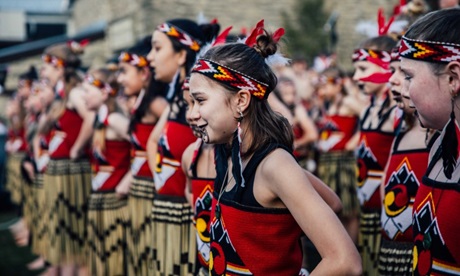As a nation, we’re still figuring out what to do with Matariki.
Regional anniversary days or King’s birthdays are easy. Many have their own rituals and routines: beach, boat or bach for the weekend is the aspiration for most of us.
In one sense, Matariki is a long-overdue move towards a confident national identity.
Most of our holidays are imports, and many are seasonally out of place or a touch too colonial for the present day.
At the same time, the public ritual of hautapu at Matariki confronts us with another world – the Māori world, which is often invisible to Pākehā consciousness.
It invites us to consider a spiritual side to a holiday that does not fit easily into our dominant national narrative.
Secular culture and karakia
Pākehā New Zealand is one of the most aggressively secular cultures in the world.
And yet, we will soon see the Wellington elite participating in a karakia to atua (divine beings) that many of the attendees do not believe exist — although it would be a naïve or reckless politician who would admit to that view!
I applaud this inclusion of spirituality in the bland intellectual desert of Pākehā secularism.
I also believe there is a reality which the invocations of the whetū (stars) of Matariki engage with.
I am not a sceptical Pākehā politician, virtue-signalling my allegiance to the cultural tide of resurgent Māori identity.
In fact, my view is that the atua being invoked may well decide to engage in human affairs, but I would much rather that they didn’t – I doubt their benevolence, not their being.
Despite my qualms, I much prefer a nation where our debate is about the best way to engage with spirituality, rather than whether it has a place at all.
Engaging with the reality of the unseen world allows us to engage in the kind of moral reasoning that can build a flourishing society – one that enables productive political competition instead of a divisive reductionism.
Including Māori rituals and spirituality
The inclusion of Māori rituals and spirituality in public life is in one sense the development of a new civic religion.
Christianity once notionally held that place, but the hypocrisy of the settlers, and their settler churches, led to Christian allegiance being more a matter of public identity signalling than a devout force uniting communal life.
What we are now seeing, in response to the human longing for transcendence, is a re-emergence of one Māori way of being into our public culture.
I welcome that cultural shift.
Rituals, as the English theologian Elizabeth Oldfield recently observed, help us to attend to aspects of reality that we might otherwise not notice.
In a world defined by algorithmic bids for our attention, it is all too easy for us to ignore what ought to be obvious to us.
Māori have never lost attentiveness to those aspects of reality that we call spirituality.
Among Māori, the debate is not whether there is a spiritual dimension to life – that is a given – but about which way of engaging spiritually is good, and has the power to ensure our collective flourishing. Read more
- The Ven Dr Lyndon Drake (Ngāti Kuri, Ngāi Tūāhuriri, Ngāi Tahu) is the Archdeacon of Tāmaki Makaurau in the Māori Bishopric of Te Tai Tokerau. He holds a DPhil in theology from the University of Oxford.
News category: Analysis and Comment.




